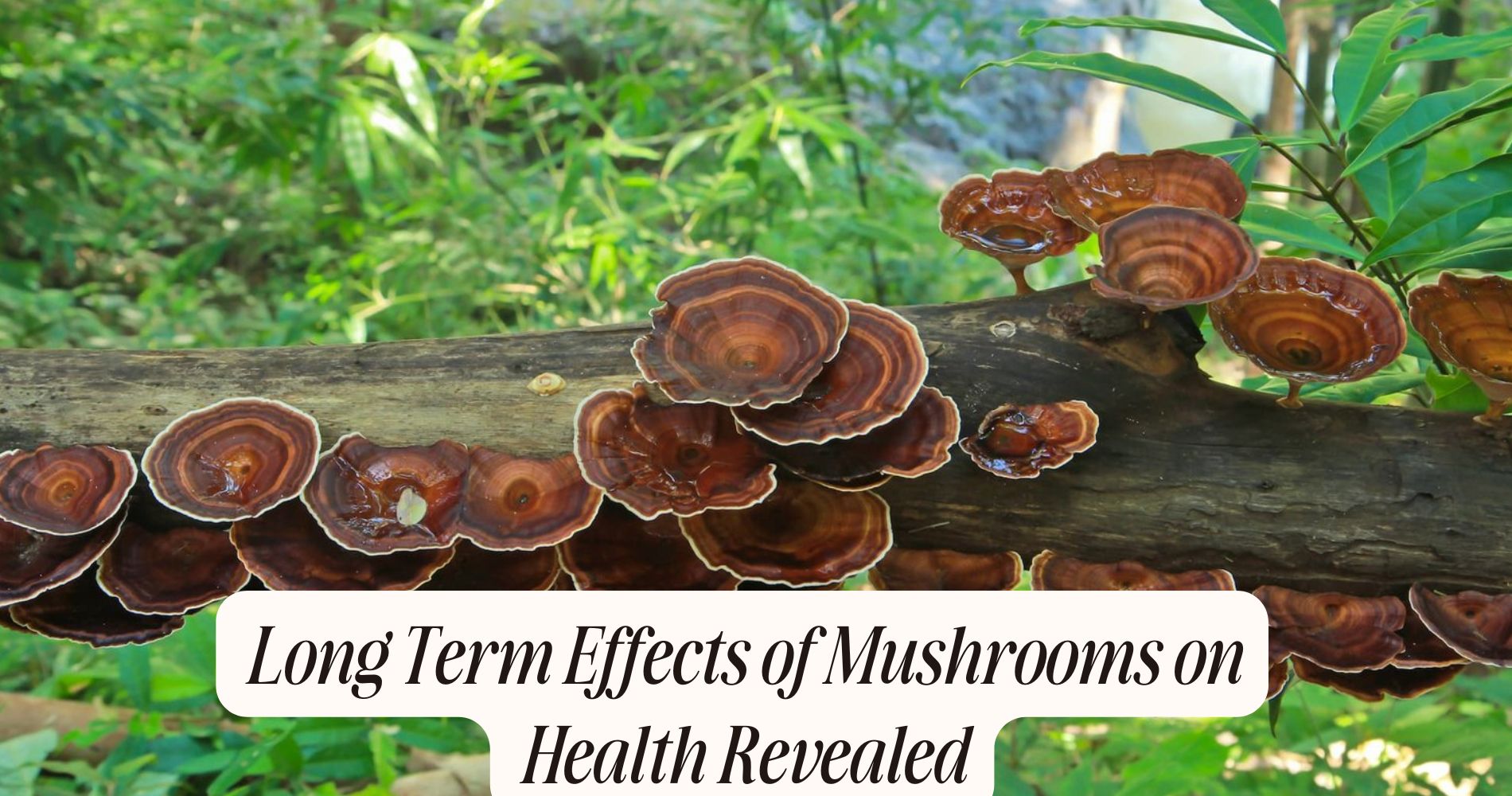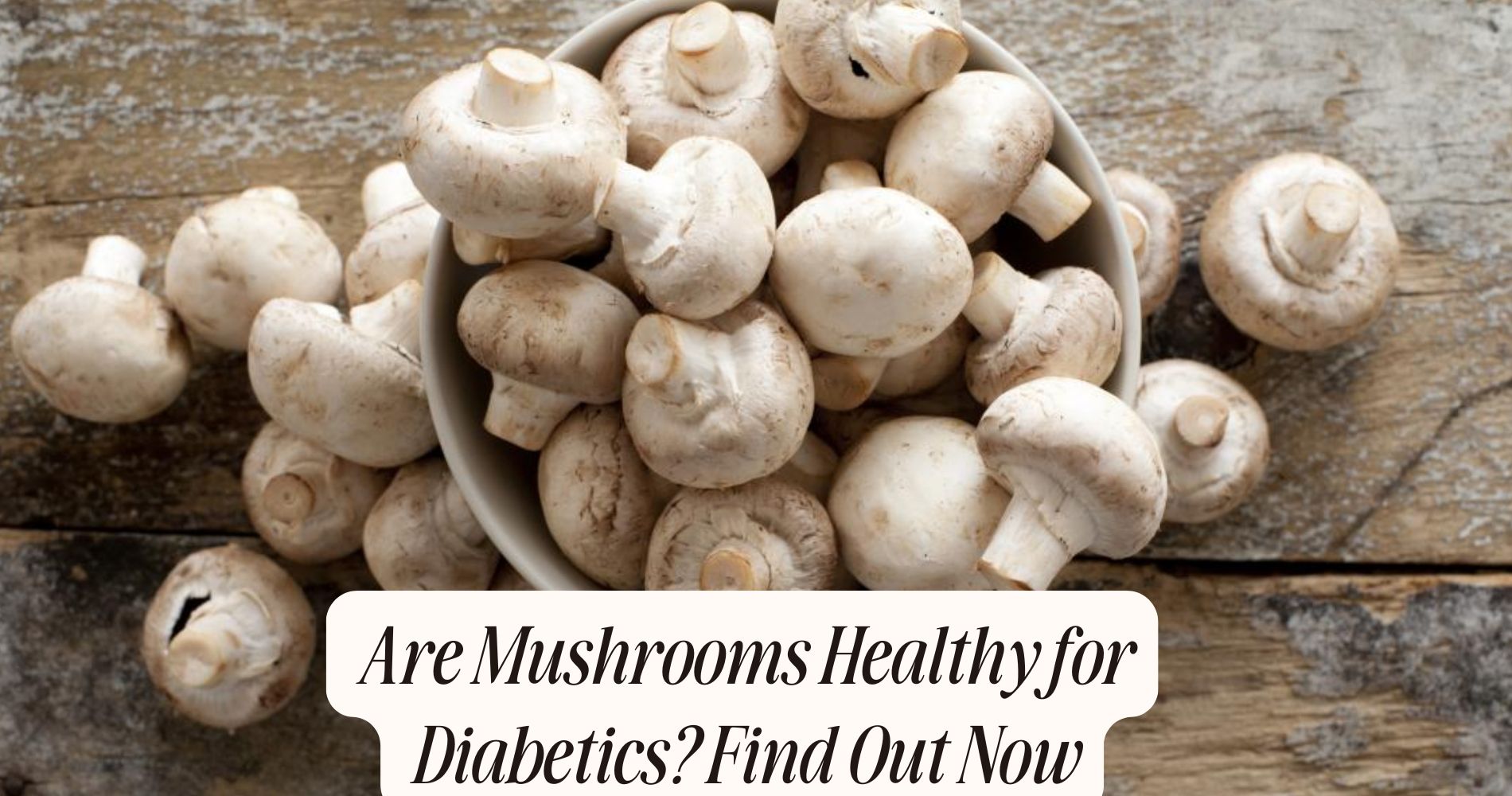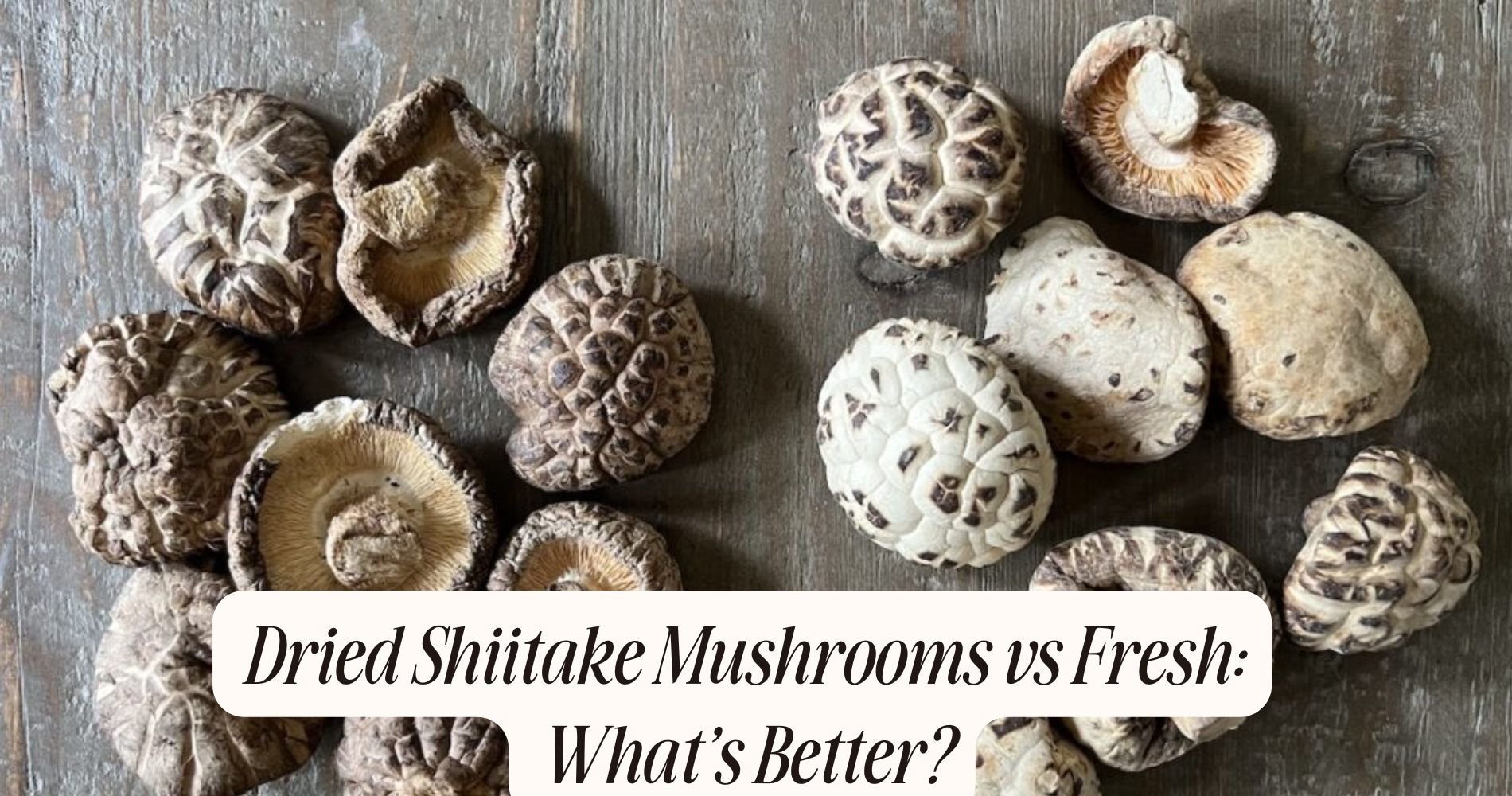
Long Term Effects of Mushrooms on Health Revealed
Nutritional Benefits of Mushrooms
When you incorporate mushrooms into your diet, you're not just adding flavor; you're also reaping a wealth of nutritional benefits. Various mushroom varieties, including shiitake, portobello, and oyster, offer unique culinary uses and enhance your dishes with depth and complexity. Their nutritional profiles are impressive, providing essential vitamins and minerals that align with dietary guidelines.
Mushrooms are particularly rich in B vitamins, such as riboflavin and niacin, which support energy metabolism. The vitamin content extends to vitamin D, especially when exposed to sunlight, promoting bone health.

Additionally, mushrooms boast significant mineral richness, including selenium and potassium, both vital for various physiological functions.
The health benefits of mushrooms don't stop at micronutrients. Their low-calorie content and high fiber levels contribute to satiety, making them an excellent choice for weight management.
In addition, their unique compounds, like beta-glucans, can enhance your overall dietary experience by improving gut health. By incorporating mushrooms into your meals, you're not only enhancing flavor but also nourishing your body, making them a valuable addition to your long-term health strategy.
Impact on Immune Function
Mushrooms can greatly influence your immune system by modulating its response and enhancing its efficacy.
Their antioxidant properties contribute to reducing oxidative stress, which is essential for maintaining ideal immune function.
Understanding these effects can help you appreciate the role of mushrooms in supporting your overall health.
Immune System Modulation
Although often overlooked, the role of mushrooms in immune system modulation is gaining significant attention in health research. You might be surprised to learn that certain fungal compounds found in mushrooms can enhance your immune response. These compounds, such as beta-glucans, interact with immune cells, promoting their activity and efficiency.
When you consume mushrooms, these bioactive substances stimulate your body's immune system, leading to a more robust defense against pathogens. For instance, studies indicate that mushrooms like shiitake and reishi can increase the production of cytokines, which are essential for coordinating your immune response. This means that your body is better equipped to fend off infections and inflammation.

Moreover, the unique composition of fungal compounds can also help regulate immune function, preventing overreactions that can result in autoimmune disorders. By incorporating mushrooms into your diet, you may not only support your immediate immune defenses but also contribute to long-term immune health.
Ultimately, understanding the impact of these fungal compounds can empower you to make informed dietary choices that foster a balanced and resilient immune system.
Antioxidant Properties Explained
Antioxidants play an essential role in maintaining your health, particularly in supporting immune function. They work through various antioxidant mechanisms that neutralize free radicals, harmful byproducts of cellular metabolism that can damage your cells.
This damage can hinder your immune response, making it vital to maintain a balanced intake of antioxidants found in mushrooms.
Mushrooms, such as reishi and shiitake, are rich in compounds like ergothioneine and polysaccharides that enhance your body's antioxidant capacity.
These compounds contribute to cellular protection by reducing oxidative stress, which is linked to chronic diseases and weakened immunity.
When your immune system is functioning at its best, it can more effectively combat infections and inflammation.
Mushrooms and Mental Health
Mushrooms can greatly influence your mental health, offering potential benefits for cognitive function and mood.
Research suggests that certain compounds in mushrooms may enhance cognitive abilities, improve mood, and reduce stress levels.
Cognitive Function Improvement
As research continues to uncover the myriad benefits of dietary choices, the potential of mushrooms to enhance cognitive function has gained significant attention. Various studies suggest that certain compounds found in mushrooms, such as ergothioneine and antioxidants, may play a critical role in cognitive enhancement. These compounds help protect brain cells from oxidative stress and inflammation, which are linked to neurodegenerative diseases.
Additionally, mushrooms like lion's mane have shown promise in improving memory retention. This unique mushroom contains bioactive substances that may stimulate nerve growth factor (NGF) production, fundamental for the growth and maintenance of neurons. By promoting NGF, lion's mane could enhance your brain's plasticity, enabling better learning and memory capabilities.

Regularly incorporating mushrooms into your diet may not only support cognitive function but also contribute to long-term brain health. By choosing a variety of edible mushrooms, you can harness their full spectrum of benefits.
It's important to focus on a balanced diet, as mushrooms alone won't guarantee cognitive improvement. However, their role as a nutritious food source can be a valuable part of your strategy for maintaining cognitive health as you age.
Mood Enhancement Benefits
The connection between diet and mental health is increasingly recognized, with mushrooms emerging as a potential ally in mood enhancement. Various mushroom species contain bioactive compounds that may contribute to mood regulation and emotional balance. For instance, certain mushrooms, like Reishi and Lion's Mane, are believed to influence neurotransmitter levels, which are vital for maintaining stable moods.
Research suggests that the polysaccharides and triterpenes found in these fungi may positively affect serotonin and dopamine production, two neurotransmitters closely linked to feelings of well-being. When you incorporate mushrooms into your diet, you're not just adding flavor; you're potentially enhancing your brain's chemical balance. This can lead to improved emotional resilience and reduced feelings of anxiety or depression.
Moreover, the antioxidant properties of mushrooms can help combat oxidative stress, which has been implicated in mood disorders. By supporting brain health through proper nutrition, including mushrooms, you may find it easier to achieve emotional balance.
Consequently, embracing mushrooms as part of your regular diet could serve as a beneficial strategy for enhancing your overall mental health and achieving better mood regulation.
Stress Reduction Effects
Incorporating certain mushrooms into your diet can greatly impact stress reduction and overall mental health. Various mushroom varieties, like reishi, lion's mane, and cordyceps, have been studied for their adaptogenic properties, which help your body adapt to stress.
Reishi, often dubbed the "mushroom of immortality," is known for its calming effects, potentially lowering anxiety levels and promoting better sleep. By including reishi in your routine, you might find a more balanced emotional state.
Lion's mane, on the other hand, has been linked to neuroprotective benefits, which can enhance cognitive function and reduce feelings of mental fog often associated with stress. Its ability to stimulate nerve growth factor production could play a vital role in maintaining mental clarity during stressful times.

Cordyceps can also contribute to stress reduction by boosting energy levels and improving endurance.
Integrating these mushroom varieties with holistic approaches, such as mindfulness and proper nutrition, can create an all-encompassing strategy for managing stress. By taking these steps, you can harness the potential of mushrooms as a natural ally in your journey toward better mental health and well-being.
Antioxidant Properties Explained
Mushrooms are a treasure trove of antioxidants, compounds that play an essential role in neutralizing harmful free radicals in the body. Different mushroom varieties, such as shiitake, reishi, and maitake, exhibit distinct antioxidant properties due to their unique compositions of phenolic compounds and polysaccharides.
These antioxidants work through various mechanisms, including scavenging free radicals and chelating metals, which helps prevent cellular damage.
The antioxidant mechanisms found in mushrooms can contribute to overall health by reducing oxidative stress, a condition linked to chronic diseases like heart disease and cancer. When you consume mushrooms, you're not just eating a flavorful ingredient; you're also incorporating powerful biological agents that can bolster your body's defenses.
Research indicates that the bioactive compounds in mushrooms can enhance your body's natural antioxidant enzymes, improving your ability to combat oxidative stress. This synergistic effect can amplify the health benefits you receive from various mushroom varieties.
Ultimately, integrating mushrooms into your diet can provide a delicious way to support your health through their impressive antioxidant capabilities.
Long-Term Gut Health Effects
Long-term consumption of mushrooms can considerably impact gut health, fostering a balanced microbiome. Mushrooms are rich in prebiotic fibers, which serve as food for beneficial gut bacteria. By incorporating mushrooms into your diet, you're nourishing these microorganisms, promoting their growth and activity. This positive interaction can enhance the diversity of your gut microbiome, an essential factor for overall health.
Research indicates that a balanced gut microbiome contributes to improved digestion and nutrient absorption. When you consume mushrooms regularly, the prebiotic fibers help regulate bowel movements and may alleviate issues like constipation.
Additionally, a diverse microbiome can bolster your immune system, providing further support against various health challenges.
Moreover, the presence of specific compounds in mushrooms, such as beta-glucans, may support the growth of beneficial bacteria while inhibiting harmful strains. This dual action helps maintain a healthy balance within your gut environment, which is important for preventing dysbiosis—a condition where harmful bacteria outnumber beneficial ones.
Incorporating mushrooms into your meals can, as a result, be a strategic choice for promoting long-term gut health and achieving a flourishing microbiome.
Role in Chronic Disease Prevention
When considering ways to reduce the risk of chronic diseases, you might be surprised to learn about the notable role mushrooms can play. Research shows that certain mushroom compounds possess anti-inflammatory properties, which can combat chronic inflammation—a key factor in many chronic diseases. By integrating mushrooms into your dietary patterns, you can enhance your overall health while addressing health disparities that often arise from poor nutrition.
Mushrooms are recognized as functional foods, packed with vitamins, minerals, and antioxidants that support metabolic health. Regular consumption can bolster your immune system and improve disease management, especially for conditions like diabetes and heart disease. Their low-calorie, nutrient-dense profile makes them an ideal component of a balanced diet.

Moreover, lifestyle integration of mushrooms into meals is simple and versatile, allowing you to experiment with various cuisines while reaping health benefits. By prioritizing mushrooms in your diet, you not only enjoy flavorful dishes but also contribute to chronic disease prevention.
Embracing these fungi can lead to a healthier future, notably impacting your well-being and longevity.
Potential Risks of Overconsumption
While incorporating mushrooms into your diet can offer numerous health benefits, it's important to be mindful of potential risks associated with overconsumption. Eating too many mushrooms can lead to gastrointestinal distress, which may manifest as bloating, gas, or diarrhea. These symptoms can be particularly pronounced if you're not accustomed to consuming high-fiber foods or if the mushrooms are rich in certain compounds that your digestive system may struggle to process.
Additionally, certain types of mushrooms carry the risk of mushroom toxicity, especially if you venture into foraging. Not all mushrooms are safe to eat, and misidentifying a toxic variety could have serious health consequences.
Even edible mushrooms can pose risks if consumed in excessive amounts, as some contain naturally occurring toxins that, while safe in moderation, can accumulate in your body over time.
To enjoy the benefits while minimizing risks, it's essential to consume a balanced amount and guarantee you're choosing safe, properly identified varieties. Being aware of these potential pitfalls will help you make informed decisions and maintain a healthy relationship with mushrooms in your diet.
Incorporating Mushrooms Into Diet
Incorporating mushrooms into your diet can be a straightforward way to enhance your meals with flavor and nutrition. With numerous mushroom varieties like shiitake, portobello, and oyster, each offers distinct flavor profiles and culinary uses. You can experiment with different cooking techniques, such as sautéing, grilling, or roasting, to discover which methods best suit your taste preferences.
When meal planning, consider seasonal availability; certain mushrooms peak at different times of the year, guaranteeing freshness and sustainability. You'll find that integrating mushrooms into health recipes can provide a rich source of vitamins, minerals, and antioxidants, aligning with current health trends emphasizing plant-based diets.
To facilitate dietary integration, you might add mushrooms to salads, stir-fries, or pasta dishes. Their umami flavor enhances the overall taste, making them an excellent substitute for meat in various recipes.
Additionally, sustainable sourcing is essential; look for local farms or organic options to reduce your environmental impact. By embracing these strategies, you can effectively incorporate mushrooms into your diet, reaping the health benefits while enjoying their diverse culinary applications.
Unlock Long-Term Benefits with 10-IN-1 MUSHROOM GUMMIES
When exploring the long term effects of mushrooms on health, consider Well Gummies’ 10-IN-1 MUSHROOM GUMMIES as a simple way to enjoy their lasting benefits. Each gummy combines 10 functional mushrooms, offering immune support, calm energy, and enhanced focus to promote overall well-being over time. With a refreshing wild berry flavor, these vegan-friendly gummies make incorporating mushrooms into your daily routine both easy and enjoyable. Experience steady energy without jitters or crashes, and support your body and mind for the long haul with these nutrient-packed gummies.
Frequently Asked Questions
Can Mushrooms Interact With Medications or Supplements?
Mushroom interactions with medications and supplements can affect your health. It's essential to consult a healthcare professional to guarantee supplement safety and avoid potential adverse effects, as certain mushrooms may interfere with your prescribed treatments.
Are There Specific Mushrooms That Are More Beneficial Than Others?
Certain mushrooms, like reishi and shiitake, boast significant medicinal properties alongside their culinary uses. You'll find these varieties enhance immunity and overall health, making them more beneficial than common mushrooms in your diet.
How Do Different Cooking Methods Affect Mushroom Health Benefits?
Different cooking techniques impact nutrient preservation in mushrooms. Steaming or sautéing retains more vitamins, while boiling can lead to nutrient loss. By choosing the right method, you can enhance the health benefits of mushrooms in your meals.
Are There Any Allergies Related to Consuming Mushrooms?
Yes, mushroom allergies can occur. You might experience symptoms like itching, swelling, or gastrointestinal distress. Common mushroom triggers include species like porcini and shiitake, so it's essential to know your sensitivities before consuming them.
What Is the Best Way to Store Mushrooms for Maximum Freshness?
To maximize mushroom freshness, store them in a paper bag in the refrigerator. Avoid airtight containers, as they trap moisture. Following these mushroom storage tips helps maintain flavor and texture longer, ensuring you enjoy your mushrooms.
Conclusion
Incorporating mushrooms into your diet can offer numerous long-term health benefits, from enhancing immune function to supporting mental well-being. Their antioxidant properties and role in gut health can contribute to chronic disease prevention. However, it is crucial to be mindful of potential risks associated with overconsumption. By understanding these effects, you can make informed dietary choices that maximize the advantages of mushrooms while minimizing any downsides, ultimately promoting a healthier lifestyle.




